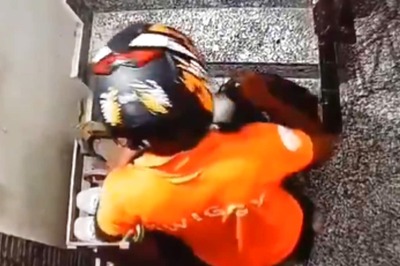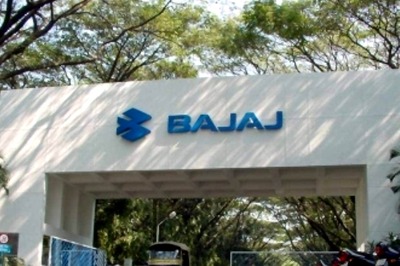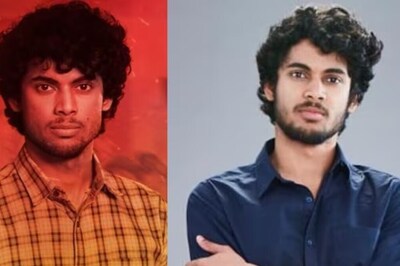
views
This article appeared on the parent Website on December 23 at 3:19 pm.
By James Crabtree in Mumbai and James Fontanella-Khan in New Delhi
As they settled into their seats in the Prime Minister's office on Thursday, India's corporate elite faced a long and worrying end-of-term report card.
Around the table sat Ratan Tata, Mukesh Ambani and Sunil Mittal – the heads of the Tata Group, Reliance Industries and Bharti Enterprises respectively – amid a dozen industrialists summoned to chew over their country's faltering growth. The group are practised optimists, well-versed in cheery talk about India's glowing prospects. But few of them could claim that "India Inc" had endured anything other than a bruising twelve months.
2011 began with Manmohan Singh's economic advisers predicting growth of close to 9 per cent. Many thought the pace could be faster still, leading to heady talk of double digit expansion, and a youthful Indian tiger breathing down Beijing's neck. Today, following months of slowing growth and a currency in free fall, the mood in Delhi could hardly be more different.
The titans themselves have hit a rough patch. One notable absentee from the PM's table was Anil Ambani, Mukesh's brother. The younger Mr Ambani has endured a grim year: shares in his listed companies have dropped more than 50 per cent, and some are now embroiled in controversy following revelations in a London court case.
He is far from the only one of India's "bollygarchs" to end 2011 on his back heel. Ravi Ruia, billionaire founder of the Essar Group, this week became the most high profile business leader yet to be ensnared in India's telecoms corruption scandals. Meanwhile, shares in Essar's London-listed energy group have tumbled 70 per cent over the past 12 months in part due to project delays.
The Tata Group has also suffered from its heavy exposure to developed markets, which have been hit by the eurozone crisis, and volatile commodity prices. Tata Steel lost nearly 50 per cent of its stock market value this year, while Tata Motors suffered significant losses due to a slowing domestic car market.
Elsewhere Vijay Mallya, the charismatic head of Kingfisher Airlines, has been struggling to keep his cash-strapped carrier in business, reflecting the woes of the entire domestic industry. Shares in the country's three listed airlines – Kingfisher, Jet Airways and SpiceJet – have plunged more than 60 per cent this year, while state-owned Air India has been depending on government bail-outs.
Investors suffered an equally stormy time. The Bombay Stock Exchange benchmark Sensex index dropped 26 per cent, against a backdrop of slowing growth but stubbornly high inflation. Meanwhile 28 companies scrapped plans to go public, and with that their plans to raise Rs322bn ($6.1bn), according to research by SMC Global Securities, a New Delhi broker.
The rupee did worse still. Fighting off stiff competition to win the title of Asia's worst performing currency, it dropped about 20 per cent against the dollar, creating unexpected financial stress for a corporate sector that has developed a worrying taste for unhedged foreign currency loans.
Behind the scenes even long-time enthusiasts of the stock market are backing off. This week, widely-followed "India bull" Chris Wood of CLSA Asia-Pacific Markets threw in the towel. Warning of a "reflexive vicious cycle in Indian assets", and hinting darkly of future bank stress, Mr Wood cut his Indian exposure, plumping for China and Korea instead.
In public, India's business leaders tend to blame stormy global conditions for the domestic corporate woes; in private there is much grumbling about regulatory bungling in New Delhi. Yet as Montek Singh Ahluwalia, a widely respected senior technocrat, noted in Mumbai this week: "We cannot fool ourselves that only global factors are responsible for the slowdown in our growth."
Complaints about policy stasis have more weight. India is dotted with half-finished infrastructure projects that experts agree will be crucial to maintaining high growth rates – so much so that at Thursday's meeting Mr Singh agreed to a new push to pinpoint derailed infrastructure plans, and then promised to knock heads together to get them quickly back on track in the coming months.
Such resolute action would be a welcome, if rare, occurrence in Delhi. Indeed, the figure most damaged by India's trying year may be the Prime Minister himself, whose newly acquired reputation for dithering was only worsened by December's debacle over foreign investment in retail. A bare nine days after the government said it would open up the sector to foreign companies like Walmart and Tesco, it reversed its stance.
India's corporate leaders haven't had a bravura year either. Mr Tata has kept a low profile, focusing on handing over power to Cyrus Mistry, who also attended the titans' meeting – a first outing for the chairman-elect of India's most global company.
Others, notably Mukesh Ambani, seem content to sit quietly on the sidelines, accumulating cash. Speculation about when Mr Ambani will invest some of his estimated $12.6bn war chest abroad is something of a parlour game in Mumbai's business circles. That he might risk putting some portion of it back into India's struggling economy is rather less discussed.
Take all of this together, and it is little wonder that Rajiv Kumar, the director-general of the Federation of Indian Chambers of Commerce and Industry, is so cutting about his country's business leadership. "One can surely blame the government for doing too little, but we went along with them," says Mr Kumar. "We became complacent as we started believing in the myth that in India there were structural reasons that would keep growth above 7 per cent for good."
Many analysts predict worse is to come. The next quarterly corporate reporting season begins in mid-January, when many businesses will be seen to have suffered from slowing growth and unhedged currency exposure. More broadly, with anti-graft campaigner Anna Hazare slated to leave Delhi and arrive in India's business capital of Mumbai for the first time next week, India's protracted and unresolved corporate corruption crisis will only come more sharply into focus.
Not everyone is quite so gloomy, however. Deepak Parekh, one of India's most thoughtful business leaders, who also attended Thursday's Prime Ministerial pow-pow, sees cause for at least a modicum of seasonal cheer. "At the moment, our economic switch is off, but you only need small measures to switch it back on," he says, pointing to the need for deficit reduction and interest rate cuts to take advantage of recent data on slowing food inflation.
Following the meeting Mr Parekh said he was even "optimistic" that such an agenda would be delivered. If it was, he said, it would be "a Christmas present for all of us, and for the country." Those lions of Indian capitalism who sat with him around the table can only hope he is right.




















Comments
0 comment